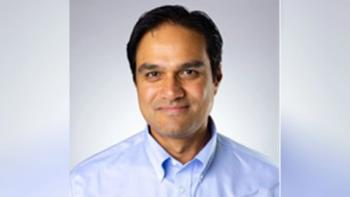
Finding the right financial advisers
Hiring good professionals will make life easier and keep you on the law's good side.
Paying for financial advice isn't necessarily an extravagance, no matter how simple your situation.
"Even when you're salaried and single, it's a good idea to start meeting with an accountant, if only once a year at tax time," said Steven B. Enright, a fee-only financial planner in River Vale, NJ. "Besides handling your tax concerns, an accountant can point you in the right direction on other financial subjects and help you avoid some basic pitfalls." Advice that helps you avoid even one blunder is likely to save you more than the amount you paid the accountant.
You'll occasionally need an attorney as well, and not just for wills or house closings.
How else can financial advisers help you? Here are some examples.
Accountants
A good accountant isn't just a number-cruncher who prepares tax returns. He can point out tax consequences of investments and keep you up to date on tax law changes that may affect your holdings.
"You don't need to hook up with a big national firm," said Enright. "But you need more than what you get from a tax-preparation company, which just pumps your numbers into a computer program and spits out a return. You can buy a software program to do that. The accountant may charge $300, but for that you'll get professional tax help and build a relationship for the future, when you'll earn more and need more sophisticated tax guidance."
When choosing an accountant, try to find one with a CPA designation. CPAs must pass a challenging exam and meet continuing education requirements. But non-CPAs can be just as capable. Always ask for references, and pick an adviser you feel you can trust, since he'll be privy to your deepest financial secrets, money bloopers and spending quirks. Your adviser's personality, whether fast-paced or low-key, conservative or bold, should suit your own. If you feel awkward about asking questions, you won't have an effective relationship.
Financial Planners
With more and more accountants providing full financial-planning services, do you also need a financial planner? Maybe.
It's true that the accountant who does your taxes probably knows as much about your finances as anyone, and he's in a good position to judge how various investments might affect you at tax time. But you may not want to rely on one source for all your financial advice. And when it comes to matters such as stocks, mutual funds and estate planning, an accountant may not be nearly as well trained as a financial planner.
A planner can show you how to fund college tuition, assess how much you'll need for retirement and help you save for those goals. He can also advise you about reducing debt, investing and choosing insurance. He can develop a plan and bring in accountants, lawyers and insurance agents as needed.
One thing you don't want him to do is sell you life or disability insurance. "It's a big mistake to think of an insurance salesman as a financial planner," Steven Enright said.
Maybe you need help with a particular decision, but you don't want a full financial plan. Many planners will advise you on an as-needed basis, for an hourly charge comparable with those of accountants or attorneys, or for a flat one-time fee.
Say you're offered two positions, and you're not sure which one to take. A planner can help you make the right choice. "The benefits package could make the difference," Enright noted. "Is the disability insurance policy offered by each employer adequate? How do the firms' 401(k) plans compare? It's worth a couple of hundred dollars to have someone look that over and give you advice."
If you'll be relying on a planner's recommendations regarding specific financial products, consider how he's compensated. Fee-only planners don't receive commissions on the investments they recommend. Other advisers, who may sell investment products such as annuities or mutual funds, earn commissions or a combination of fees and commissions. Fee-only planners have one major advantage: They have no incentive to push any particular product.
A planner's credentials can tell you something about his training and experience. Certified Financial Planners, or CFPs, have completed advanced training and have passed a 10-hour certification exam. They have at least three years' work experience - five if they don't also have a college degree.
A Chartered Financial Consultant, or ChFC, must pass 10 college-level courses covering subjects such as financial planning, investment taxes and estate planning, and must have at least three years' professional experience.
Lawyers
Few people need an attorney on a regular basis, but sometimes one is essential. Like doctors, many lawyers are specialists. It makes no more sense to hire a tax lawyer for a divorce case than to hire a urologist to perform heart surgery. And just as in medicine, some lawyers are generalists. A good generalist should be able to handle routine matters.
Should you use a legal GP to draw up your will? That depends. If you're single and have few assets, or you're married but have no kids, you need only a simple will - if you need one at all. Most any attorney can draw up one for you, said Enright. "But if you accumulate assets and have a child, you'll need a more sophisticated will," he added. "It should be done by someone with estate-planning experience, not the generalist who also handles real-estate closings.
Matrimonial law is another specialized area. It's especially important to have a good divorce lawyer if child custody is an issue.
Before hiring any attorney, ask colleagues and a trusted accountant for recommendations. Get a resume that shows the attorney's background, training and experience. You're looking for the same traits you'd seek in a colleague: a good school, relevant experience, association with respected firms, minimal job-hopping.
Stockbrokers
If you want a broker who'll give you investment advice, your best bet is a full-service stockbroker. This type can supply research on companies and recommend stocks, bonds and mutual funds. A broker should base investment suggestions on your risk tolerance. A sharp one also will alert you to great buys and tell you when to ditch a lemon.
Find out whether his company has a large research department with specialists in areas such as international, small-cap and sector classes. Stockbrokers earn relatively high commissions on your trades; the added cost is worthwhile only if you use their advice and service. For example, if you bought 200 shares of a $30 stock through a discount broker, you might pay $60 in commissions. The same purchase through a full-service broker could run twice as much or more.
Before you sign on with a broker, call the National Association of Security Dealers' Public Disclosure Hotline at (800) 289-9999, and request a report on him. You can also complete an on-line request form at www.nasdr.com.
Discount brokers, such as Olde Discount or Charles Schwab charge lower commissions, but most won't offer financial advice.
If your portfolio is relatively simple and you're comfortable doing things for yourself, you might consider on-line trading. Many large brokerage houses, such as Fidelity, allow you to make trades directly through their Web sites for a nominal fee, often less than $20. There are many discount on-line brokerages as well.
Banks
Banks aren't just for checking and savings accounts. Many banks offer financial advice as well as a wide array of investment alternatives. You can buy or sell stocks, bonds and mutual fund shares, and select annuities and life insurance.
In fact, banks now manage a significant percentage of mutual funds. A bank's biggest advantage is convenience. Many tout one-stop shopping, meaning you can switch money back and forth between your funds and your checking or savings accounts. You also get a single monthly statement for all your funds and accounts.
Keep in mind, though, that mutual funds purchased at a bank are no less risky than funds purchased elsewhere. Unlike savings accounts, the funds aren't covered by federal deposit money.
People often use banks to set up trusts. Many banks require a minimum dollar amount in assets, ranging from $50,000 to $250,000, to set up a trust. You'll pay an initial fee plus other annual charges. Banks' performances as trustees vary greatly, so talk with a few people who have used the trust department, and check with state regulatory agencies for complaints against the bank.
Once you decide what kind of financial advisers you need, invest some time looking for qualified candidates. Anyone can call himself a financial adviser, even someone with no training. Start by asking your colleagues, your attorney or others you trust for recommendations. Or check with a referral service for the names of local financial specialists. Interview at least two candidates, and ask a few of their clients how well they've performed. Don't base your decision on one conversation. PR
Newsletter
Lead with insight with the Pharmaceutical Executive newsletter, featuring strategic analysis, leadership trends, and market intelligence for biopharma decision-makers.



